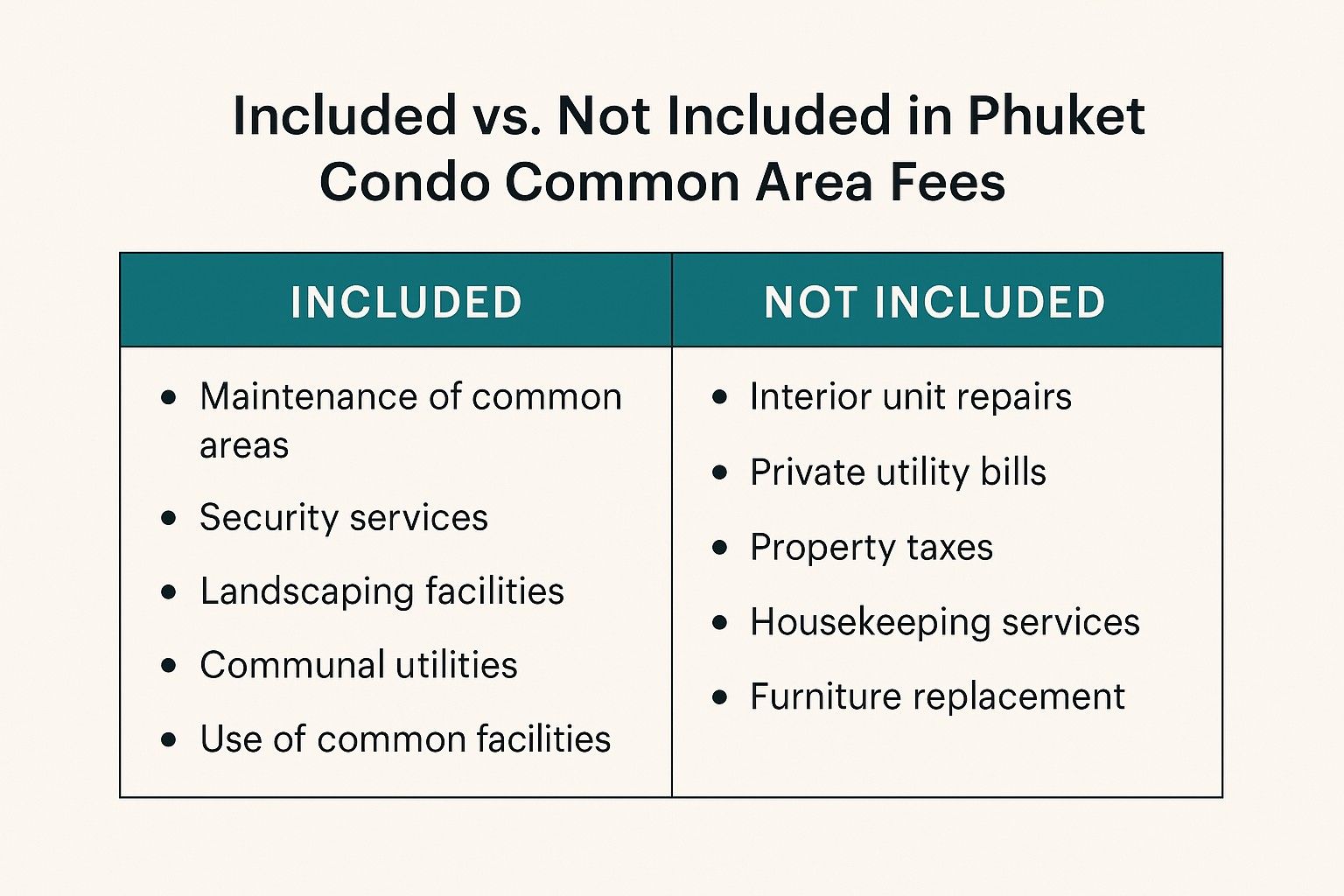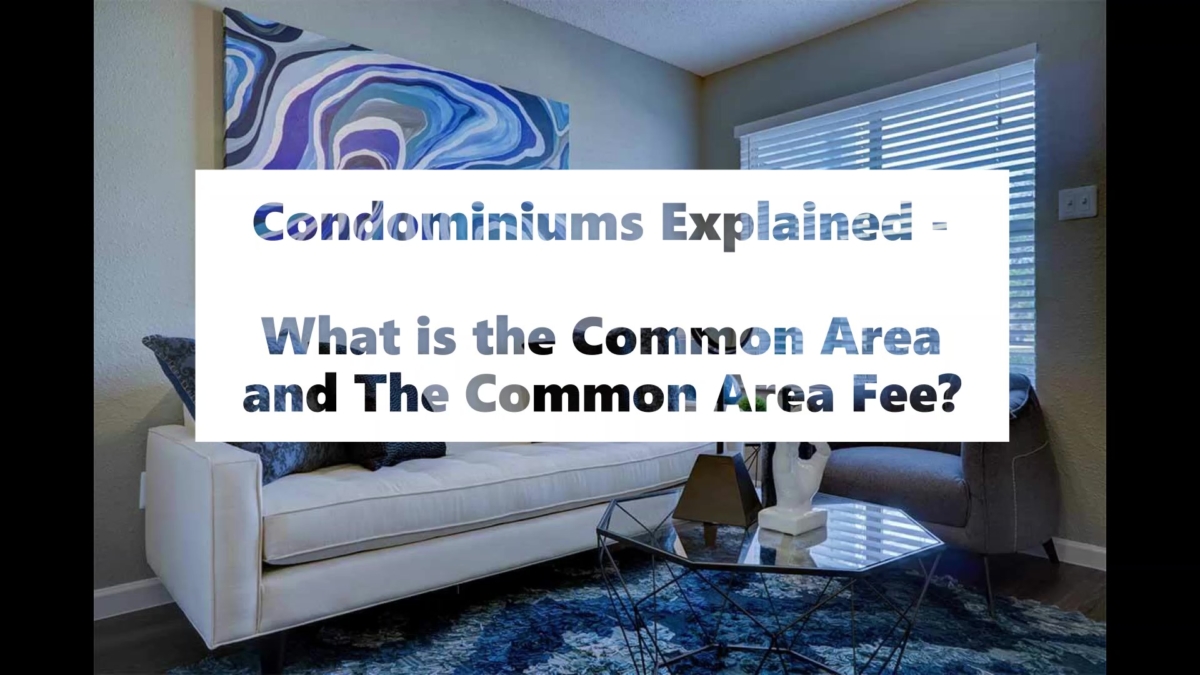Phuket common area fees, often referred to as CAM fees, are a standard part of condominium ownership. These fees cover the upkeep, services, and facilities shared by all co-owners. Understanding how common area fees are calculated, managed, and used is essential for anyone involved in the island’s condominium market.
What Are Common Area Fees?
Common area fees are mandatory contributions that every condominium owner pays to cover shared expenses. They ensure that the building and its facilities remain functional, safe, and appealing for all residents.
Typical expenses covered by common area fees include:
-
Cleaning and maintenance of shared areas.
-
Security staff and systems.
-
Landscaping and garden upkeep.
-
Utility bills for lighting, lifts, and common facilities.
-
Salaries of juristic office staff.
Unlike a sinking fund, which is a one-time payment for long-term repairs, common area fees are collected regularly, usually monthly or annually.
How Common Area Fees Are Calculated
The calculation of Phuket common area fees is typically based on unit size:
-
Square metre basis – Larger units pay higher fees, as they represent a greater share of the total project.
-
Development type – Luxury or resort-style condominiums with extensive facilities may set higher fees.
-
Facilities provided – Gyms, pools, and other amenities increase maintenance costs.
Example: If fees are set at THB 60 per sqm per month, a 50 sqm unit would pay THB 3,000 monthly.
What Do Common Area Fees Cover?
Phuket common area fees are collected to maintain the shared spaces jointly owned by all unit holders. These areas typically include:
-
Swimming pools and fitness centres
-
Lobbies, reception areas, lifts, and stairwells
-
Parking areas and security posts
-
Landscaping, gardens, walkways, and corridors
-
The building exterior and roof
The condominium juristic person (management body) is responsible for maintaining these spaces on behalf of co-owners. The fees are pooled to cover cleaning, landscaping, security staff and CCTV, elevator maintenance, day-to-day repairs, utilities for shared facilities, staff salaries, and insurance for common property. A portion may also be allocated to the sinking fund, which is reserved for major long-term repairs and upgrades.

Who Manages the Common Area Fees?
By law, Phuket common area fees are managed by the Condominium Juristic Person (CJP), which is the registered management body of the building. Responsibilities include:
-
Collecting and allocating fees fairly.
-
Maintaining transparent accounts.
-
Reporting finances annually to co-owners.
-
Ensuring services and facilities are maintained to an agreed standard.
The CJP acts on behalf of all owners and must present financial reports at general meetings for review.
Legal Framework
Phuket common area fees are governed under the Condominium Act. Key points include:
-
Every registered condominium must collect common area fees.
-
Payment is compulsory for all unit owners.
-
Fees must only be used for shared expenses that benefit all owners.
For official details, see the Thai Department of Lands Condominium Act translation
Common Misunderstandings About Common Area Fees
Many owners misunderstand how Phuket common area fees function. Common misconceptions include:
-
“They are optional.” – Fees are legally required, and unpaid fees can result in penalties or even restrictions on property use.
-
“They are profit for the developer.” – After transfer, funds are controlled by the CJP, not the developer.
-
“They cover everything.” – Routine maintenance is included, but major repairs are funded by the sinking fund.
Why Phuket Common Area Fees Matter
Common area fees are vital to the health and quality of condominium living. When these funds are collected and managed transparently:
-
Buildings remain safe, functional, and well maintained.
-
Shared spaces such as pools, lifts, and landscaped areas are kept in good condition.
-
Costs are distributed fairly among all co-owners, based on unit size.
-
Residents avoid sudden one-off charges for large repairs.
-
Co-owners experience fewer disputes, as responsibilities are clearly defined.
Without properly managed common area fees, condominiums risk falling into disrepair, which affects every resident and reduces the overall quality of life.
Can Phuket Common Area Fees Change Over Time?
Yes, Phuket common area fees are not fixed permanently. They can be adjusted based on decisions made at the Annual General Meeting (AGM) of co-owners. Any significant increase or decrease in fees must be approved by a majority vote at the AGM.
This makes it important for condo owners to attend AGMs and participate, as these meetings decide how the condominium is managed and how funds are allocated for maintenance and services.
Unpaid Fees and Resale Issues
Phuket common area fees must be kept up to date because outstanding balances can cause problems if an owner decides to transfer or sell their unit. By law, the condominium juristic person will not issue the clearance documents needed for a transfer until all fees are settled. This ensures fairness among co-owners and protects the condominium’s finances.
Difference Between Common Area Fees and the Sinking Fund
Common area fees and the sinking fund serve different purposes. Common area fees are monthly contributions used for everyday expenses such as cleaning, security, and staff salaries. The sinking fund, on the other hand, is a one-time payment collected when a unit is first transferred, reserved for major long-term repairs like elevator replacement or roof work. Both are mandatory and together ensure the condominium remains safe, functional, and well maintained.
For a detailed breakdown, see our full guide on the Phuket condo sinking fund.
Summary: Common Area Fees
Common area fees are essential for maintaining the day-to-day operations of condominiums. They cover security, cleaning, landscaping, and utilities in shared spaces, and are legally required under the Condominium Act. Transparent management of these fees protects both the quality of living and the long-term value of the property.
FAQ: Phuket Common Area Fees
What are common area fees?
They are regular contributions made by condominium owners to cover maintenance, security, and upkeep of shared facilities.
How are common area fees calculated?
Fees are usually based on the size of each unit in square metres, with larger units paying more.
Are Phuket common area fees refundable?
No. These are ongoing contributions and cannot be refunded.
Who controls the use of common area fees?
The Condominium Juristic Person manages the funds, presenting accounts and reports to co-owners at meetings.
How do common area fees differ from a sinking fund?
Common area fees cover routine expenses, while sinking funds are a one-time payment set aside for major future repairs.
Related Guides
Conclusion
Phuket common area fees form the backbone of condominium management on the island. By pooling resources from all owners, they ensure shared spaces and facilities are properly maintained. For co-owners, understanding how these fees are calculated, collected, and managed is a vital part of responsible condominium ownership in Phuket.
A clear understanding of common area fees gives every co-owner the confidence to manage their responsibilities and protect the long-term health of their building.
Disclaimer: The information contained in this article is provided for general informational purposes only and does not constitute legal, financial, or investment advice. While every effort has been made to ensure accuracy at the time of publication, property laws and regulations in Thailand are subject to change. Readers should always seek independent legal advice from a qualified Thai lawyer before making any property-related decision or transaction.


Social Contact